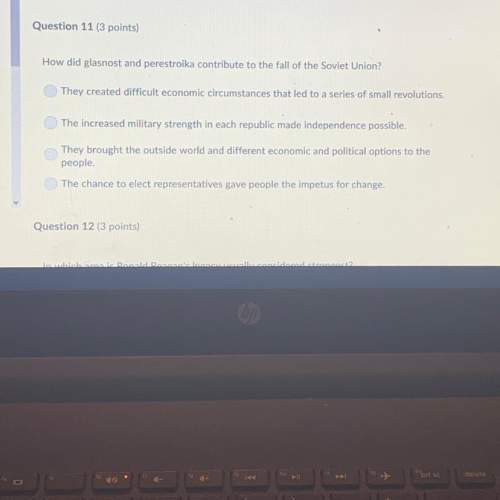
History, 07.12.2020 18:50 nicolasjarrin
Refer to the passage.
"Article III. The principle of all sovereignty resides essentially in the nation. No body nor individual may exercise any authority which does not proceed directly from the nation.
Article IV. Liberty consists in the freedom to do everything which injures no one else; hence the exercise of the natural rights of each man has no limits except those which assure to the other members of the society the enjoyment of the same rights. These limits can only be determined by law.
Article V. Law can only prohibit such actions as are hurtful to society. Nothing may be prevented which is not forbidden by law, and no one may be forced to do anything not provided for by law.
Article VI. Law is the expression of the general will. Every citizen has a right to participate personally, or through his representative, in its foundation. It must be the same for all, whether it protects or punishes. All citizens, being equal in the eyes of the law, are equally eligible to all dignities and to all public positions and occupations, according to their abilities, and without distinction except that of their virtues and talents.”
Excerpt from the Declaration of the Rights of Man and of the Citizen, a fundamental document of the French Revolution, 1789
The Haitian Revolution was most influenced by the Enlightenment principles reflected in the passage and by which of the following Enlightenment thinkers?
A. Thomas Hobbes
B. Thomas Jefferson
C. Baron de Montesquieu
D. Jean-Jacques Rousseau

Answers: 1


Other questions on the subject: History

History, 22.06.2019 03:30, alex7881
Describe the pure of the counter-reformation and the circumstances and outcomes of the council of trent. include the role of the jesuits in your assessment. conduct independent research, as needed, to support your answer with specific historical information.
Answers: 2

History, 22.06.2019 04:30, aahneise02
Did the both the us and ussr have atomic weapons after 1949
Answers: 1

History, 22.06.2019 07:00, imstupid77
Why were presidents andrew jackson and martin van buren unwilling to annex texas? a. they did not want texas to be admitted to the union as a slave state. b. they feared that the annexation of texas as a slave state would lead to political problems within the union. c. they thought that texas was too large to be admitted to the union as one state. d. they did not believe in the idea of manifest destiny.
Answers: 2
You know the right answer?
Refer to the passage.
"Article III. The principle of all sovereignty resides essentially in the nat...
Questions in other subjects:

History, 17.10.2019 18:40



Physics, 17.10.2019 18:40


Mathematics, 17.10.2019 18:40

Mathematics, 17.10.2019 18:40

History, 17.10.2019 18:40

Mathematics, 17.10.2019 18:40





